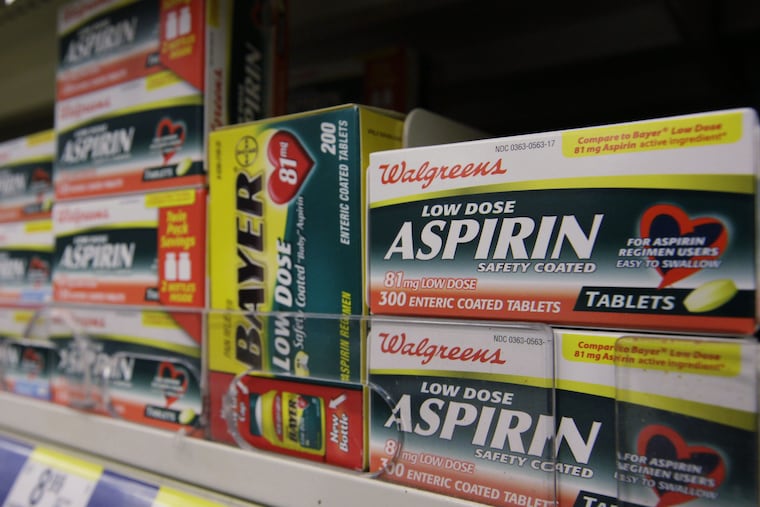29 million Americans take low-dose aspirin daily, but some probably shouldn’t
The researchers note that the daily use of aspirin by those without cardiovascular issues runs counter to current medical guidelines.

At least 29 million Americans take low-dose aspirin every day in hopes of preventing a heart attack or stroke, according to a report by Harvard Medical School researchers.
The dose typically used is 81 milligrams, commonly called "baby aspirin." The number includes about 10 million people who do not have a history of heart disease or stroke and 6.6 million people who are taking daily aspirin without a doctor's advice or knowledge. The researchers, who used data complied by the Census Bureau for the Centers for Disease Control and Prevention, note that the daily use of aspirin by those without cardiovascular issues runs counter to current medical guidelines, updated in March, by the American Heart Association and the American College of Cardiology.
Those guidelines advise against a daily aspirin for most people at low or moderate risk for heart disease, saying the potential benefits do not outweigh the risks. Aspirin can increase the chance of severe bleeding, and long-term use may lead to peptic ulcers. The new guidelines acknowledge that some people - such as those who have had a heart attack or stroke or who have had bypass or stent-inserting surgery - may still stand to benefit from taking daily aspirin, if prescribed by their doctor.
But for most people, heart experts now say that healthier habits - getting regular exercise, following a heart-healthy diet, not smoking, controlling your weight - provide a safer route to cardiovascular well-being.